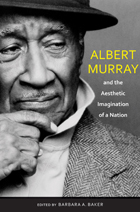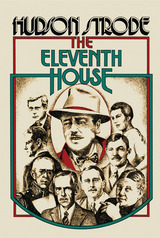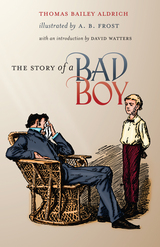3 books about Noble, Don

Albert Murray and the Aesthetic Imagination of a Nation
Edited by Barbara A. Baker
University of Alabama Press, 2010
The first book-length study of the writings, work, and life of Renaissance man and Alabama native Albert Murray
This collection consists of essays written by prominent African American literature, jazz, and Albert Murray scholars, reminiscences from Murray protégés and associates, and interviews with Murray himself. It illustrates Murray’s place as a central figure in African American arts and letters and as an American cultural pioneer.
Born in Nokomis, Alabama, and raised in Mobile, Albert Murray graduated from Tuskegee University, where he later taught, but he has long resided in New York City. He is the author of many critically acclaimed novels, memoirs, and essay collections, among them The Omni-Americans, South to a Very Old Place, Train Whistle Guitar, The Spyglass Tree, and The Seven League Boots. He is also a critic and visual artist, as well as a lifelong friend of and collaborator with artistic luminaries such as Ralph Ellison, Duke Ellington, and Romare Bearden. As such, his life and work are testaments to the centrality of southern and African American aesthetics in American art. Murray is widely viewed as a figure who, through his art and criticism, transforms the “fakelore” of white culture into a new folklore that illustrates the centrality of the blues and jazz idioms and reveals the black vernacular as what is most distinct about American art.
This collection consists of essays written by prominent African American literature, jazz, and Albert Murray scholars, reminiscences from Murray protégés and associates, and interviews with Murray himself. It illustrates Murray’s place as a central figure in African American arts and letters and as an American cultural pioneer.
Born in Nokomis, Alabama, and raised in Mobile, Albert Murray graduated from Tuskegee University, where he later taught, but he has long resided in New York City. He is the author of many critically acclaimed novels, memoirs, and essay collections, among them The Omni-Americans, South to a Very Old Place, Train Whistle Guitar, The Spyglass Tree, and The Seven League Boots. He is also a critic and visual artist, as well as a lifelong friend of and collaborator with artistic luminaries such as Ralph Ellison, Duke Ellington, and Romare Bearden. As such, his life and work are testaments to the centrality of southern and African American aesthetics in American art. Murray is widely viewed as a figure who, through his art and criticism, transforms the “fakelore” of white culture into a new folklore that illustrates the centrality of the blues and jazz idioms and reveals the black vernacular as what is most distinct about American art.
[more]

The Eleventh House
Memoirs
Hudson Strode, Introduction by Don Noble
University of Alabama Press, 1975
"Every place I visited," says Hudson Strode, "was like a surprise package to be opened, and I untied the strings with high expectations." Reading The Eleventh House: Memoirs is like going to a party of smartly dressed guests.
Strode starts his foreign travels in Sorrento with Dante's descendant Count Dante Serego-Alighieri as his guide. He takes a Russian cattle boat to Tunisia and lunches with the lovely Countess de Brazza. Then he embarks on a whirlwind tour of South America and writes South by Thunderbird. Later, in England, he visits Rebecca West at her country home and strikes up a warm friendship with Lady Astor. In Denmark his hostess is Isak Dinesen. In Finland he meets Jan Sibelius.
Such are the times of Hudson Strode. With his keen eye for settings, with candor, energy, and curiosity, Strode sees his famous friends closely and wholly. His is a unique account.
The Eleventh House is the story of a rewarding and fascinating life told by a man who remembers it all with affection. He tells it for the record and as great entertainment.
Strode starts his foreign travels in Sorrento with Dante's descendant Count Dante Serego-Alighieri as his guide. He takes a Russian cattle boat to Tunisia and lunches with the lovely Countess de Brazza. Then he embarks on a whirlwind tour of South America and writes South by Thunderbird. Later, in England, he visits Rebecca West at her country home and strikes up a warm friendship with Lady Astor. In Denmark his hostess is Isak Dinesen. In Finland he meets Jan Sibelius.
Such are the times of Hudson Strode. With his keen eye for settings, with candor, energy, and curiosity, Strode sees his famous friends closely and wholly. His is a unique account.
The Eleventh House is the story of a rewarding and fascinating life told by a man who remembers it all with affection. He tells it for the record and as great entertainment.
[more]

Lewis Nordan
Humor, Heartbreak, and Hope
Edited by Barbara A. Baker
University of Alabama Press, 2012
Lewis Nordan: Humor, Heartbreak, and Hope examines and celebrates the work of southern writer Lewis “Buddy” Nordan, whose stories reveal his own pain and humanity and in their honesty force us to recognize ourselves within them.
Written by scholars and fiction writers who represent a fascinating range of experience—from a Shakespearean scholar to English professors to a former student of Nordan’s—this is a rich array of essays, poems, and visual arts in tribute to this increasingly important writer. The collection deepens the base of scholarship on Nordan, and contextualizes his work in relation to other important southern writers such as William Faulkner and Eudora Welty.
Nordan was born and raised in Mississippi before moving to Alabama to pursue his Ph.D. at Auburn University. He taught for several years at the University of Arkansas in Fayetteville and retired from the University of Pittsburgh, where he was a professor of English. Nordan has written four novels, three collections of short stories, and a memoir entitled Boy with Loaded Gun. His second novel, Wolf Whistle, won the Southern Book Award, and his subsequent novel, The Sharpshooter Blues, won the Notable Book Award from the American Library Association and the Fiction Award from the Mississippi Institute of Arts and Letters. Nordan is renowned for his distinctive comic writing style, even while addressing more serious personal and cultural issues such as heartbreak, loss, violence, and racism. He transforms tragic characters and events into moments of artistic transcendence, illuminating what he calls the “history of all human beings.”
[more]
READERS
Browse our collection.
PUBLISHERS
See BiblioVault's publisher services.
STUDENT SERVICES
Files for college accessibility offices.
UChicago Accessibility Resources
home | accessibility | search | about | contact us
BiblioVault ® 2001 - 2024
The University of Chicago Press









